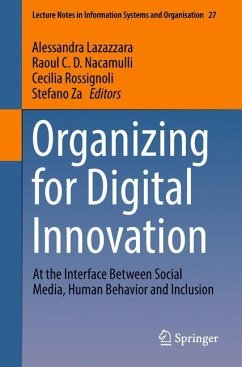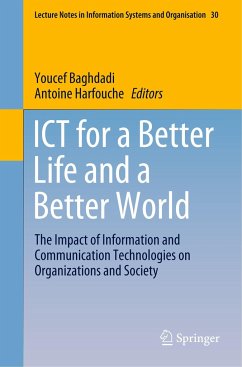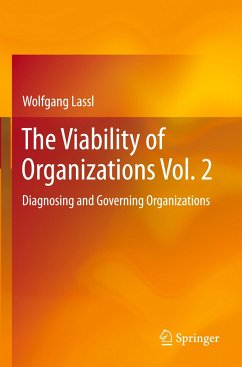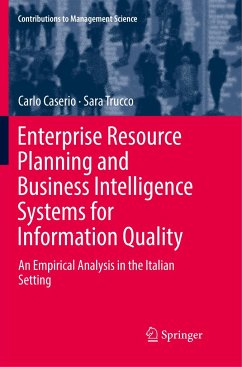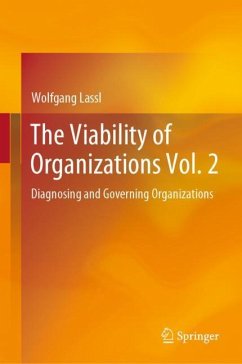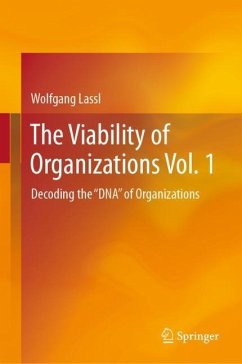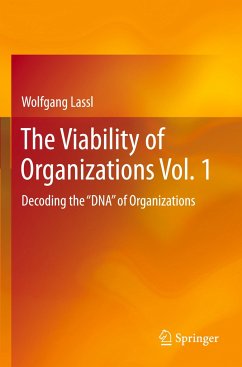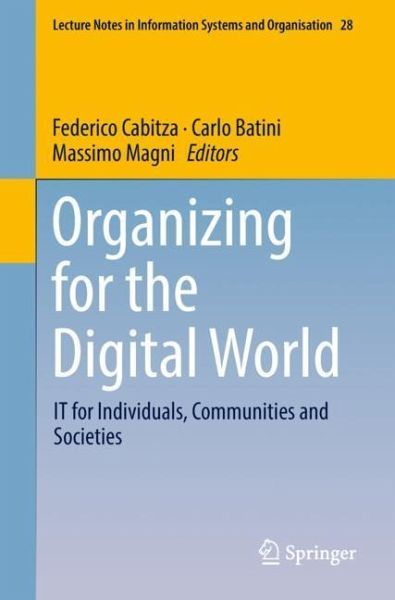
Organizing for the Digital World
IT for Individuals, Communities and Societies
Herausgegeben: Cabitza, Federico; Batini, Carlo; Magni, Massimo

PAYBACK Punkte
38 °P sammeln!
This book argues that "organizing" is a broader term than managing, as it entails understanding how people and machines interact with each other; how resources, data, goods are exchanged in complex and intertwined value chains; and how lines of action and activities can be articulated using flexible protocols and often ad-hoc processes in situated practices of use and production. The book presents a collection of research papers shedding new light on these phenomena and related practices from both academic and professional perspectives. Given the plurality of views that it offers, the book mak...
This book argues that "organizing" is a broader term than managing, as it entails understanding how people and machines interact with each other; how resources, data, goods are exchanged in complex and intertwined value chains; and how lines of action and activities can be articulated using flexible protocols and often ad-hoc processes in situated practices of use and production.
The book presents a collection of research papers shedding new light on these phenomena and related practices from both academic and professional perspectives. Given the plurality of views that it offers, the book makes a relevant contribution to the understanding and appreciation of the complexity of the digital world at various levels of granularity. It focuses on how individuals, communities and the coopetitive societies of our new, global and hyperconnected world produce value and pursue their objectives and ideals in mutually dependent ways. The content of the book is based on a selection of thebestpapers - original double-blind peer-reviewed contributions - presented at the annual conference of the Italian chapter of the AIS, which was held in Milan, Italy in October 2017.
The book presents a collection of research papers shedding new light on these phenomena and related practices from both academic and professional perspectives. Given the plurality of views that it offers, the book makes a relevant contribution to the understanding and appreciation of the complexity of the digital world at various levels of granularity. It focuses on how individuals, communities and the coopetitive societies of our new, global and hyperconnected world produce value and pursue their objectives and ideals in mutually dependent ways. The content of the book is based on a selection of thebestpapers - original double-blind peer-reviewed contributions - presented at the annual conference of the Italian chapter of the AIS, which was held in Milan, Italy in October 2017.



